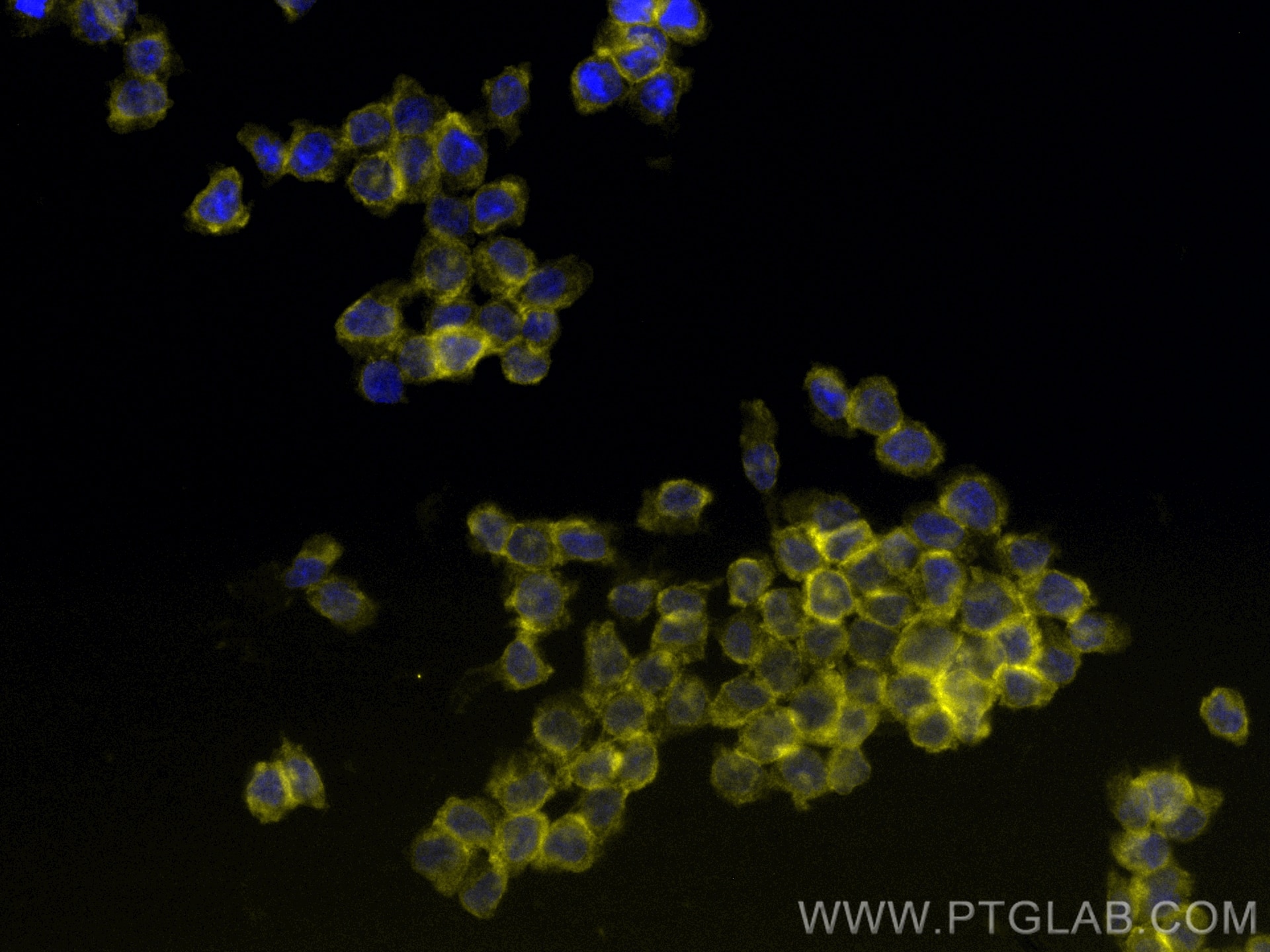Tested Applications
| Positive IF/ICC detected in | THP-1 cells |
Recommended dilution
| Application | Dilution |
|---|---|
| Immunofluorescence (IF)/ICC | IF/ICC : 1:50-1:500 |
| It is recommended that this reagent should be titrated in each testing system to obtain optimal results. | |
| Sample-dependent, Check data in validation data gallery. | |
Product Information
CL532-83729-5 targets SIRP Alpha/CD172a in IF/ICC applications and shows reactivity with human samples.
| Tested Reactivity | human |
| Host / Isotype | Rabbit / IgG |
| Class | Recombinant |
| Type | Antibody |
| Immunogen |
Recombinant protein Predict reactive species |
| Full Name | signal-regulatory protein alpha |
| Calculated Molecular Weight | 55 kDa |
| Observed Molecular Weight | 75-85 kDa |
| GenBank Accession Number | NM_080792 |
| Gene Symbol | SIRP Alpha |
| Gene ID (NCBI) | 140885 |
| RRID | AB_3673404 |
| Conjugate | CoraLite®532 Fluorescent Dye |
| Excitation/Emission Maxima Wavelengths | 537 nm / 560 nm |
| Form | Liquid |
| Purification Method | Protein A purification |
| UNIPROT ID | P78324 |
| Storage Buffer | PBS with 50% glycerol, 0.05% Proclin300, 0.5% BSA, pH 7.3. |
| Storage Conditions | Store at -20°C. Avoid exposure to light. Stable for one year after shipment. Aliquoting is unnecessary for -20oC storage. |
Background Information
SIRP Alpha, also known as CD172a, SHPS-1, and BIT, belongs to the SIRP family. SIRP Alpha is a transmembrane glycoprotein expressed explicitly on myeloid cells and provides a "do not eat me" signal after engaging with integrin-associated protein CD47 on tumor cells (PMID: 36419386). SIRP Alpha shows heterogeneity in molecular weight (~65-120 kDa) in various tissues due to differential glycosylation (PMID: 18051954).
Protocols
| Product Specific Protocols | |
|---|---|
| IF protocol for CL532 SIRP Alpha/CD172a antibody CL532-83729-5 | Download protocol |
| Standard Protocols | |
|---|---|
| Click here to view our Standard Protocols |




